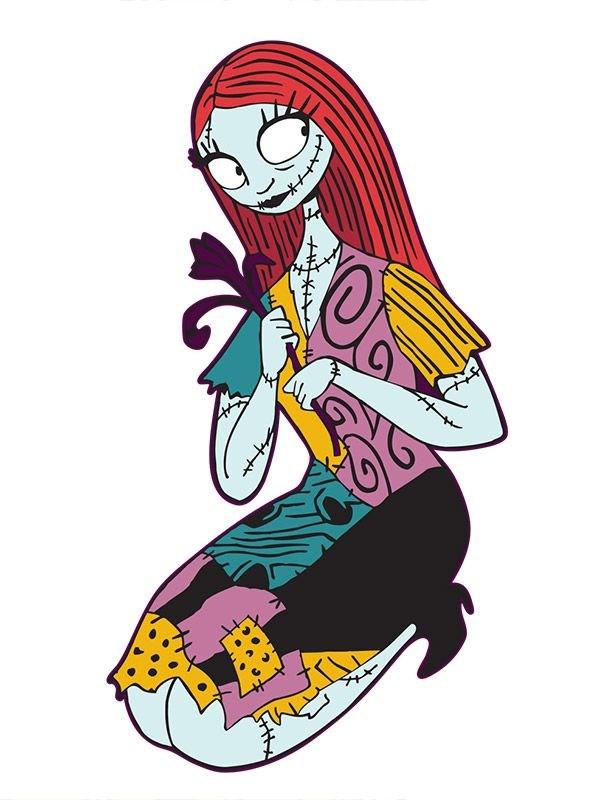Trick Or Treat















It is a proud time for me as I approach retirement (Yeah Nah) and see where BigDog is now positioned in the NDIS world From such tiny beginnings, just me, as a single support worker in 2009 to now where BigDog provides support for hundreds of NDIS, Child Safety and Department of Justice clients, own and operate 13 accommodation homes, own 2 administration buildings and operate a Community Centre, operate a fleet of modern vehicles including 2 wheelchair buses, have a not for profit and charity division and employ some of the finest management and support workers in the sector.
For the last 6 years we have been operating most of our administration team from our Ruthven Street address (thanks to Harold Crane who believed in us and has been a great landlord) and had such great exposure from passing traffic that the corner is known by the majority of taxi drivers and Toowoomba locals as the BigDog corner (not Bunnings who are diagonally across from us). We are currently utilising cutting edge software that we have been heavily involved in the development of, for our client and staff records, rostering, notes, invoicing and payroll, as well as staff training and development programs. Our web site includes staff access to policies, procedures and training as well as newsletters and chat rooms. Thank you all for your magnificent contribution.
BigDog Newsletter Privacy Notice: Please note that as a subscriber to our

news and events relevant to this organisation, your email address

any other
only be used for the purpose for which you gave it to us and will not be
agency except where you have provided your consent or it is required

KILOON HOUSE
We are very proud to announce that we have purchased this house of historic significance to operate as our new administration office. Conveniently located opposite Grand Central Shopping Centre it offers a commanding position overlooking the CBD.


The current lessors will be vacating in late October and we will be making some changes including installing new computer networking, office furniture and security, so our anticipated operational date will be sometime in late November or early December.
The main areas of the house will feature period furniture to reflect the heritage of this beautiful building.

The National Disability Insurance Agency (NDIA) has a new look leadership team, headlined by new NDIA chair, Australian Paralympian and disability advocate, Kurt Fearnley AO.

Mr Fearnley is joined by new NDIA Chief Executive Officer (CEO) Rebecca Falkingham, and Board members Dr Graeme Innes AM and Maryanne Diamond AO. Ms Falkingham, the former Department of Justice and Community Safety Secretary, is the first permanent female CEO of the NDIA.
Dr Innes, is a lawyer, author and former Chair for Vision Australia, while Ms Diamond is the General Manager of Stakeholder Engagement at the NDIA. She was also instrumental in the National Disability Insurance Scheme (NDIS) rollout.
Additionally, former NDIA Chair Dr Denis Napthine AO, who resigned from his position in July of this year, has been reappointed back to the Board.
Mr Fearnley says he is excited by the role and looks forward to providing a fresh take on the NDIA.
“I think it’s important that the participants of the NDIS get to see themselves in this organisation, and trust with the organisation itself is a visceral thing,” says Mr Fearnley.
“The scheme cannot be a success without trust and that is built over a period of time. It’s filled that’s one thing I do know about the community of people with disabilities, they are
filled with hope.
“
The scheme itself I can’t wait to get to know the people within the organisation, to get to know those that are building the NDIA. It’s an honour the Minister would see me fit to take on this role.
“
And I can’t wait to join the Board with, well, with two other voices behind me, of people with disabilities, who have another fresh take on what this organisation can be.”
NDIS Minister Bill Shorten says his new appointments deliver on a promise he made before the Federal Election to “prioritise putting people with lived experience of disability back at the centre of the scheme”. These appointments also reinforce the calls for inclusivity at the NDIS as well.
“
The way I would want to see the National Disability Insurance Scheme (NDIS) run is a broad church where people feel included, not excluded,” says Minister Shorten.
People with disability welcomed to the NDIA
It has been a tumultuous year for the NDIA after former CEO Martin Hoffman and chair Dr Napthine both resigned in July.
Mr Napthine’s absence was short lived as Mr Shorten announced he will be returning to the NDIA board today.
The departure of these executives led to calls from the disability community to appoint more people with disability to leadership positions within the NDIA.
The addition of Mr Fearnley, Dr Innes and Ms Diamond means the NDIA board features a historic five people with disability, including current members Leah van Poppel and Meredith Allan.
Mr Fearnley was full of praise for his fellow board members and he says their experience will greatly benefit people with disability.
“I will do everything within my power to engage with the people who I have fought alongside, who I have engaged with for the last decade when it comes to the advocacy of the scheme,” says Mr Fearnley.
“
We’re also bringing not just my voice, but we’re also bringing Maryanne and Graeme, who bring a depth of experience to the organisation at the Board level, whether it be their advocacy role, or Marianne’s experience of working within the NDIS itself.
“This organisation can be what we believe it to be. For now, I just need to take a breath [and] get to know the organisation."
Mr Fearnley adds he is looking forward to sitting down with the NDIA Board and getting an understanding of where the NDIS is at and what they can do to improve it.
Focus on building trust

Australia's national peak disability and advocacy organisation, People with Disability Australia (PWDA), hopes to see trust between the NDIS and people with disability rebuilt.
Deputy CEO Carolyn Hodges says it is important the new NDIA CEO listens to the experts and provides a wide range of positive outcomes.
"Ideally, PWDA would like to see any new CEO concentrate on rebuilding trust between the NDIS and people with disability, their families and supporters," says Ms Hodges.
"Too many people with disability have been living in fear of losing the supports they need.
"[The NDIA needs to] ensure planning decisions are based on listening to the experts people with disability themselves and the professionals they chose to support them.
"[We also want to see] work to ensure that the NDIS supports high quality and equitable outcomes for a diverse range of participants regardless of their specific disability, location, culture and language groups and/or sexuality."

Ms Hodges says PWDA also wants to see a reduction in the number of appeals being taken to the Administrative Appeals Tribunal, while ensuring all outcomes are developed and delivered in partnership with people with disability.
Excluding people over 65
“
The scheme was designed [for under] 65. I think there’s a challenge for disability care for people over 65.” Minister Shorten stated
Queen Elizabeth II
The royal who wasn’t supposed to become queen at all, sat on the throne for 70 years following the death in 1952 of her father, George VI, who himself assumed the throne only because of the abdication by his brother, King Edward VIII in 1936.
Working with 15 British prime ministers throughout her reign, beginning with Winston Churchill, the queen served as head of state for both Labour and Conservative governments, following the modern royal tradition of remaining neutral on political matters.
She helped lead her country through the aftermath of World War II, the Cold War, economic booms and busts, strife in Northern Ireland, the creation of the European Union and Brexit.
Admired for her dedication to her job, Queen Elizabeth was seen by many Britons as a pillar of strength for the country at a time when the nation was navigating its diminishing world power.

Earning the distinction of Britain’s longest reigning monarch on September 9, 2015, she characteristically went about her daily duties, which included opening a new railway in Scotland, barely mentioning the distinction.
"Inevitably, a long life can pass by many milestones; my own is no exception," she said at the ceremony.



With the Queen's passing she was transported from Scotland to Westminster Hall for her lying in state before the state funeral.
Two queues were formed to view the lying in state, beginning 48 hours before Westminster Hall opened to the public. At its maximum extent the main queue was approximately 16 km long and had a waiting time of over 25 hours. This queue attracted much media attention, with many commentators noting the stereotype that British people are good at queueing. The accessible queue, for people with a disability or long term condition, operated a ticket system and was therefore shorter.

The state funeral service was held at Westminster Abbey on 19 September, followed by a committal service at St George's Chapel at Windsor Castle. The Queen was interred in the King George VI Memorial Chapel at St George's.


When Tim Burton's The Nightmare Before Christmas premiered in October 1993, it did so with surprisingly little fanfare for a film developed by Disney. While it was lauded by the top critics of the day, it wasn't the immediate success that Burton, director Henry Selick and their dedicated team of animators had hoped for. After the film left theaters, however, it began a transition from beloved cult movie to cultural phenomenon. Before long, Jack Skellington's grinning skull was everywhere from t shirts to tattoos and the story of how this creepy classic came about is just as interesting as the film itself.
Burton originally penned the story of The Nightmare
Before Christmas as a poem when he was a young man working as an animator for Disney.

Stop motion animation may not look quite as smooth and silky as modern CGI, but the effort that went into making The Nightmare Before Christmas rivals anything Disney have done with Pixar in the years since. The film was shot at 24 frames per second, which meant that the characters had to be painstakingly re positioned 24 times for every second of film. It took a whole week to create just a single minute of footage, with the entire process stretching out for more than three years.
To obtain a copy of WhatsUp in Disability magazine or to be a sponsor, please contact WhatsUp via:

Office 11 15 Alexander Street, Toowoomba
Email admin@whatsupindisability.org
Online www.whatsupindisability.org
WhatsUp in Disability
Stories in this issue include:
• Paul Wilson
Business disABILITY Awards
Crime in the NDIS
Dom dances ahead
Carnival of Flowers
Carnival of sadness
cost of Quality
Hyper visibility
Steven Paull PresidentThe Department of Children, Youth Justice and Multicultural Affairs (Child Safety) has a legislative responsibility to respond to information received about harm or risk of harm to a child, or an unborn child who may be at risk of harm after birth.
Child Safety is committed to respecting, protecting and promoting human rights. The Human Rights Act 2019, requires Child Safety to act and make decisions in a way that is compatible with human rights and, when making a decision, to give proper consideration to human rights.
Intake is the first phase of the child protection continuum and is delivered through a statewide intake service. Its purpose is to:
• receive information about child protection concerns from community members, service providers and government and nongovernment agencies
• provide a response to the information in accordance with Child Safety’s responsibilities
• inform the community about the role of Child Safety and provide information about child protection services.
An authorised officer will collect as much relevant information as possible from the person making contact with Child Safety in order to assess and determine the appropriate level of response to child protection concerns, either a child concern report or a notification. The safe care and connection of Aboriginal and Torres Strait Islander children with family, community, culture and country will be a key consideration in decision making by Child Safety staff.
Principles
• The safety, wellbeing and best interests of the child, both throughout childhood and the rest of the child’s life, are paramount.
• Every child has a right to protection from harm.
• Statutory powers should be exercised in a way that is open, fair and respects the rights of the child and their family.

• Child Safety staff will act and make decisions in a way that is compatible with human rights and obligations under the Human Rights Act 2019.
• The five elements of the child placement principle (prevention, partnership, placement, participation and connection) under the Child Protection Act 1999, section 5C, apply to any processes, decisions and actions taken for an Aboriginal or Torres Strait Islander child.
Authority
Child Protection Act 1999, sections 7(a) (e), (k), (l), (n) and (o), 14, 21A, 22, 159M and 186.






Last Month was the Carnival of Flowers

No Lion around here in Toowoomba at the day service we went to the Darling Downs Zoo what a wonderful day we had. Some of us got to have a pat with a carpet python called Lenny. We watched the lions and the baboons at

feeding time and then the rain set in. Epic day had by all.
With the warmer weather we will start to go swimming on a Friday.
September, we had the carnival of flowers events and the group went to the to side show alley. We also went to the flower show displays.
Morning tea in September was Wear your Footy colours morning tea with a great turnout to appreciate a BBQ chicken burgers and sausage sizzle.
As we weren’t able to go bowling so went to mini golf and had a spring BBQ at picnic point. Spring is here and we have ventured to many gardens around Toowoomba.






























